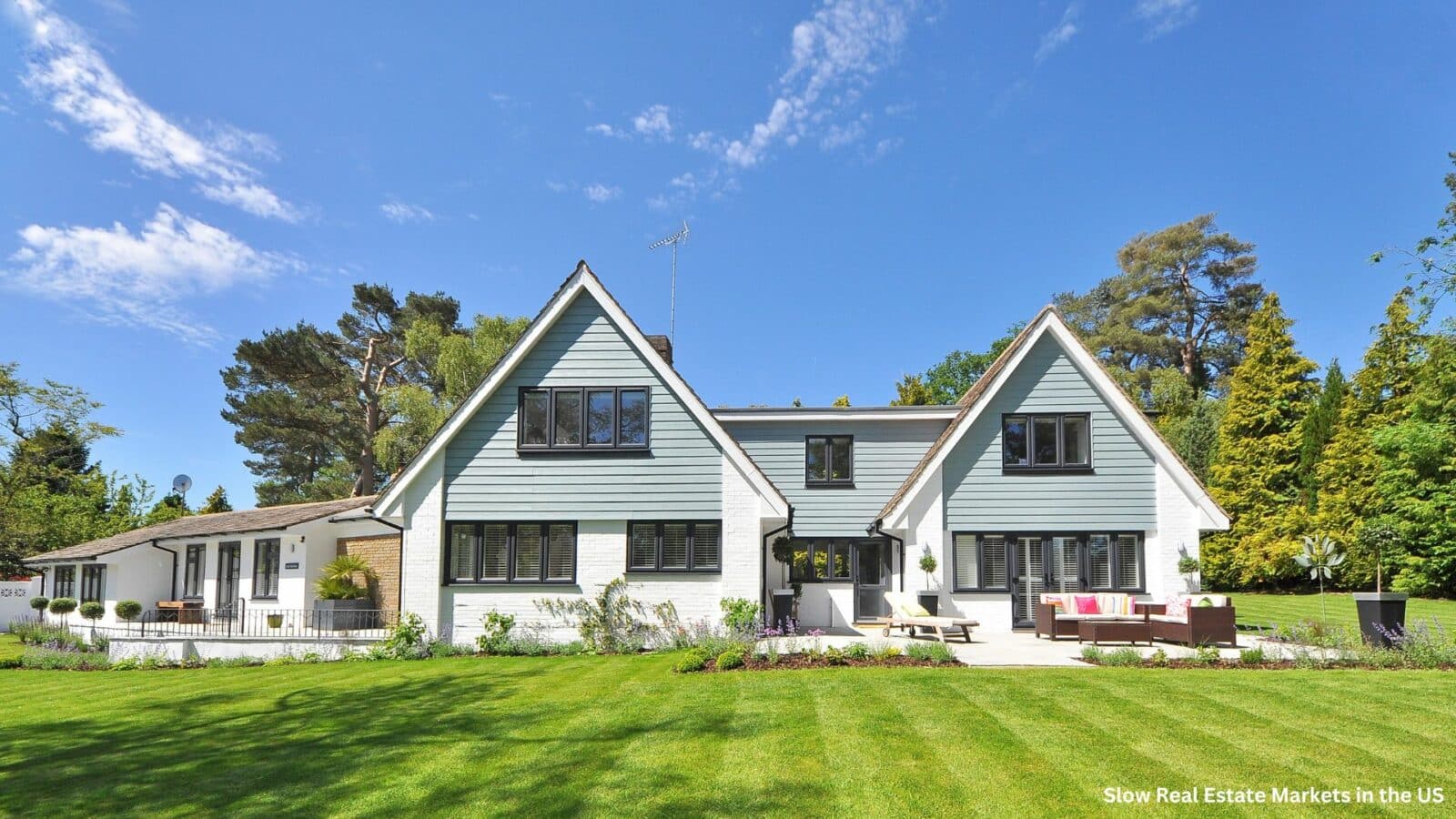In slow real estate markets, properties linger on the market longer than usual, challenging sellers and providing opportunities for buyers. This phenomenon can arise from various economic factors, including high-interest rates and economic downturns. Understanding these markets is crucial for stakeholders to make informed decisions.

Slow Real Estate Markets in the US
Here are the 12 slow real estate markets, noting the median days homes are on the market and their median list prices:
- Lafayette, LA – 69 days, $259,250
- Punta Gorda, FL – 69 days, $419,000
- Brownsville, TX – 68 days, $308,000
- Utica, NY – 68 days, $239,900
- New Orleans, LA – 67 days, $329,000
- Crestview, FL – 66 days, $644,000
- Huntington, WV – 66 days, $179,950
- Waco, TX – 66 days, $345,000
- Longview, TX – 64 days, $305,500
- Naples, FL – 64 days, $849,000
- Cape Coral, FL – 64 days, $474,100
- Baton Rouge, LA – 64 days, $305,000
These locations reflect a range of market conditions and pricing across the United States.


What Causes Slow Real Estate Markets?
According to the latest data from Realtor.com®, the national median duration for homes on the market was 50 days in March. So what is causing the slowness in some real estate markets?
- Economic Slowdown: A sluggish economy often leads to reduced buying power and lower housing demand.
- High-Interest Rates: Increased borrowing costs can deter potential buyers, leading to fewer sales.
- Overpriced Listings: If homes are priced above market value, they tend to stay unsold, saturating the market further.
Strategies for Navigating Slow Markets
For sellers, it’s vital to price homes competitively and improve property appeal. Buyers, on the other hand, can benefit from lower prices and less competition. Real estate professionals should focus on accurate market analysis and tailored sales strategies to adapt to these conditions.
Slow real estate markets require patience and strategy from all involved parties. Whether you are buying, selling, or investing, understanding the dynamics at play can help you navigate these waters more effectively. Staying informed and flexible is key to capitalizing on the opportunities presented by these market conditions.
Related posts:
 Decline in Home Prices: Anticipating a Shift in 2024
Decline in Home Prices: Anticipating a Shift in 2024
 Maryland Governor Legislative Agenda: Military Families, Housing, and Public Safety in 2024
Maryland Governor Legislative Agenda: Military Families, Housing, and Public Safety in 2024
 Nashville’s Zoning Bills for Middle-Income Housing Spark Contentious Debate
Nashville’s Zoning Bills for Middle-Income Housing Spark Contentious Debate
 New York’s Affordable Housing: Innovative Solutions Without Tax Hikes
New York’s Affordable Housing: Innovative Solutions Without Tax Hikes
 Zillow 2023 Home Sales Analysis: Prime Listing Time for Maximum Profit
Zillow 2023 Home Sales Analysis: Prime Listing Time for Maximum Profit




